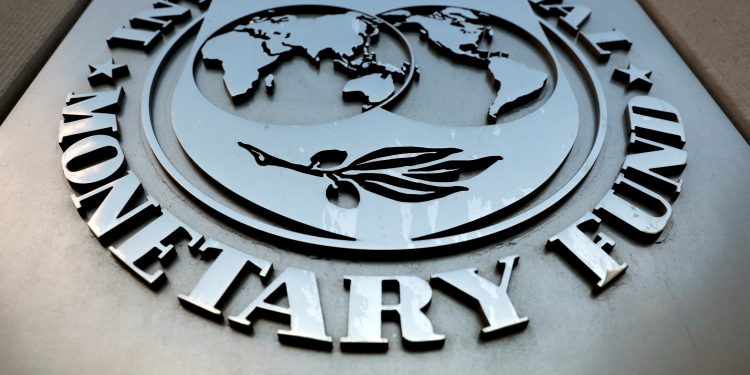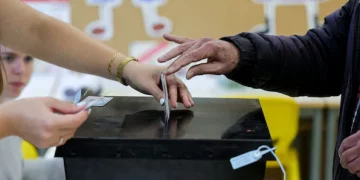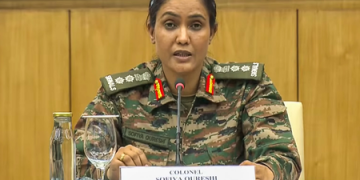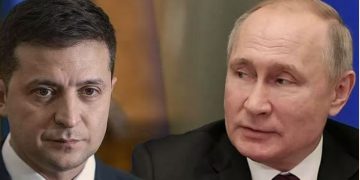Jayati Ghosh
There are many reasons to be critical of the International Monetary Fund and the World Bank, but the legitimacy crisis now confronting both institutions is not based on any of them. Instead, it has arisen for the wrong reasons, and this is serving to reinforce the real problems that have plagued the Bretton Woods institutions’ functioning.
The current controversy stems from the World Bank’s alleged manipulation of its annual Doing Business index in order to improve the rankings of China and Saudi Arabia. It threatens to claim the scalp of IMF Managing Director Kristalina Georgieva, who was the World Bank’s CEO at the time of the alleged improprieties.
The World Bank appointed a US law firm, WilmerHale, to investigate the matter. But its report relies on innuendo rather than evidence, prompting the Nobel laureate economist and former World Bank chief economist Joseph E. Stiglitz to describe it as “a hatchet job” and part of an attempted coup against Georgieva. The investigation also conveniently focused primarily on China, thereby underplaying the possible role of World Bank President David Malpass in influencing the ranking of Saudi Arabia, which was surprisingly declared the world’s top reformer in the 2020 Doing Business report.
The WilmerHale report is manna from heaven for Republicans in the US Congress, who are demanding that Georgieva resign. But the current moralistic fervour about data manipulation overlooks the fact that the Doing Business index – which has now been discontinued – was deeply flawed and overtly political from the beginning. Unfortunately, it became hugely influential in driving investors’ perceptions and policymakers’ choices.
The problems were legion. For starters, the indicators it used emerged directly from an orthodox “Washington Consensus” economic-policy approach, irrespective of its validity or applicability in different contexts. As the Columbia University historian Adam Tooze has noted, Doing Business was always “a rickety and unpredictable construction shot through with discretion and complex judgments.” My own critique centered on how the index viewed any government regulation as costly and undesirable, and treated taxation only as a cost rather than as a means of ensuring the infrastructure, institutions, and educated workforce that businesses need in order to function.
In 2018, Paul Romer, then the World Bank’s chief economist, said that right-wing ideology at the Bank played a critical role in methodological changes that altered countries’ rankings, and apologised to Chile’s left-wing government for the artificial lowering of its rank. A more recent independent academic evaluation pointed out that the index measures only de jure rules rather than their de facto implementation, and “sometimes rewards policies that benefit business at the expense of broader social objectives.”
Georgieva’s fate will be decided at this month’s annual meeting of the IMF Board. But even if she remains in her post, the Doing Business controversy has damaged her stature and influence (which may have been the point). More important, this episode must not be allowed to obscure the real problems with the functioning of the Bretton Woods institutions: the disproportionate power of the US; the IMF’s deeply procyclical approach to countries that seek its support, which contradicts its original mandate; and the G7 advanced economies’ unwillingness to enable multilateral institutions to address global problems.
When the IMF was established in 1944, it fell far short of John Maynard Keynes’ vision of an international clearing union that would treat all countries equally. Instead – and unsurprisingly – the institution reflected countries’ relative power at the time. The US secured a decisive share of voting rights and quotas, and, together with Western European countries, could determine the IMF’s policies, programmes, and allocations.
Despite significant changes in the global economy since then, that internal power structure has remained essentially unchanged. Even after the most recent reallocation, in 2016, the US retains a 16.73% voting share, while the OECD countries have a combined share of more than 60%. During Donald Trump’s presidency, the US blocked a fresh quota allocation that, among other things, would have increased China’s share. The US and the European Union can exercise veto power over any IMF decision. And under a longstanding transatlantic “gentleman’s agreement,” the World Bank chief is appointed by the US, while the head of the IMF is from a European country.
But perhaps the most damning criticism of the IMF relates to how its programmes function. The Fund’s loans not only remain inadequate for countries facing balance-of-payments problems, but also come with so many adverse conditions, including severe budget cuts, that most countries seek to avoid them. Despite this, the IMF even imposes interest surcharges on countries that are forced to borrow heavily from the Fund over a prolonged period, thereby worsening economic outcomes.
The IMF’s focus on fiscal austerity has been much criticised, including by its own economists, but has persisted during the COVID-19 crisis. This betrays the IMF’s original raison d’être: providing countercyclical lending to countries in distress so that their economies could recover with less harm to their people.
To her credit, Georgieva has sought to increase the IMF’s non-conditional financing through a new $650 billion allocation of special drawing rights (the Fund’s reserve asset). She has also called for less austerity in recovery packages and for reform of the international debt architecture. Perhaps this is why those who are trying to remove her also happen to oppose any progressive change at the Bretton Woods institutions.
Such efforts are not only unjust but also short-sighted. If an international organisation like the IMF cannot deliver basic global public goods or address global public bads like the pandemic and the climate crisis, then it is not fit for purpose. The G7 has already shown itself to be unequal to the task of global leadership, and yet its leaders are trying to subvert the use of multilateral institutions to address the enormous transnational challenges we face. Future historians will wonder why today’s rich countries shot themselves in the foot in this way.
The writer, Executive Secretary of International Development Economics Associates, is Professor of Economics at the University of Massachusetts Amherst. ©Project Syndicate.






































